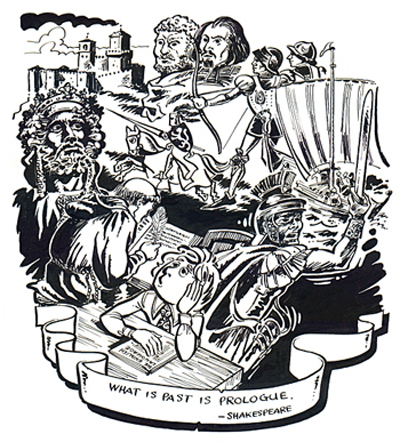Word Entries containing the term:
“historical”
April 24, 2007: Words of historical and current interest
As seen in the International Herald Tribune:
French candidates scramble for center: Sarkozy and Royal woo Bayrou voters
Takeover to create a banking behemoth: ABN AMRO accepts offer from Barclays valued at 67 billion euro
Boris Yeltsin, a flawed hero, dies; Russia's democratic father was a praised, and reviled, figure
Alpine village will break hundred years of solitude: Anticipation and dread for Austrian tunnel
From chaos, Wikipedia shapes a breaking story
U.S. Envoy to Germany joins fray over energy
Europe approves tightening of sanctions against Iran
Charges of fraud abound as ruling party wins in Nigeria
Classes resume as Virginia campus fights to regain balance
Romanian lawmakers set date for impeachment vote
Boris Yeltsin's bequest
Bagging eternal plastics
Unintended consequences
The elusive man who May have invented jazz
American talent feted in London: Energy of young New York designers goes on display
English and its Historical Development, Illustrated, Part 01
English and its Historical Development, Illustrated, Part 02
English and its Historical Development, Illustrated, Part 03
English and its Historical Development, Illustrated, Part 04
English and its Historical Development, Illustrated, Part 05
Icenian Queen,
Boadicea, made the Romans pay a heavy price.
English and its Historical Development, Illustrated, Part 06
English and its Historical Development, Illustrated, Part 07
English and its Historical Development, Illustrated, Part 08
English and its Historical Development, Illustrated, Part 09
In A.D. 410, the last
Roman legions withdrew from Britain, leaving the Celts to defend themselves against the Picts and Irish.
English and its Historical Development, Illustrated, Part 10
English and its Historical Development, Illustrated, Part 10A
English and its Historical Development, Illustrated, Part 10B
English and its Historical Development, Illustrated, Part 10C
Caedmon, wrote "Caedmon's Hymn" in A.D. 657-680.
English and its Historical Development, Illustrated, Part 11
English and its Historical Development, Illustrated, Part 12
English and its Historical Development, Illustrated, Part 13
English and its Historical Development, Illustrated, Part 14
English and its Historical Development, Illustrated, Part 15
English and its Historical Development, Illustrated, Part 16
English and its Historical Development, Illustrated, Part 17
English and its Historical Development, Illustrated, Part 18
English and its Historical Development, Illustrated, Part 19
English and its Historical Development, Illustrated, Part 20
English and its Historical Development, Illustrated, Part 21
English and its Historical Development, Illustrated, Part 22
English and its Historical Development, Illustrated, Part 23
English and its Historical Development, Illustrated, Part 24
Human activities developed new objects and concepts, requiring
new terms, many were still from Latin and Greek origins.
English and its Historical Development, Illustrated, Part 25
English and its Historical Development, Illustrated, Part 26
English and its Historical Development, Illustrated, Part 27
English and its Historical Development, Illustrated, Part 28
English and its Historical Development, Illustrated, Part 29
English and its Historical Development, Warrior Queen Boadicea Background
English and its Historical Development, Warrior Queen Boudicca Rebellion Described by Tacitus
historical atlas
(s) (noun), historial atlases
(pl)A book of maps showing the various changes that have occurred over a specified period of time in a certain geographic area or in the development of a spatial event (examples: "Historical atlases usually contain more text than a standard atlas, with maps that are usually placed next to the passages they are intended to explain."
"A historical atlas may also have a chronology, or timeline, and biographical notes about the people whose names appear in the text."
This entry is located in the following unit:
atlas
(page 1)
historical geologist
(s) (noun), historical geologists
(pl)A geologists who divides all time since the formation of the earliest known rocks (about four billion years ago) into four major divisions: Precambrian, Paleozoic, Mesozoic, and Cenozoic eras: A
historical geologis maintains that each era, except the Cenozoic, ended with profound changes in the disposition of the Earth's continents and mountains and was characterized by the emergence of new forms of life.
Broad cyclical patterns, which run through all historical geology, include a period of mountain and continent building followed by one of erosion and, and then by a new period of elevation.
historical geology
(s) (noun) (no pl)A study of the historical development of the Earth from the examination of its rocks: In
historical geology, the rocks are analyzed in order to determine their structure, composition, and interrelationships and are examined for remains of past life.
Historical geology includes paleontology, the systematic study of past life forms, stratigraphy, layered rocks and their interrelationships, as well as the locations of ancient land masses and their boundaries, and geologic mapping, the superimposing of geologic information upon existing topographic maps.

